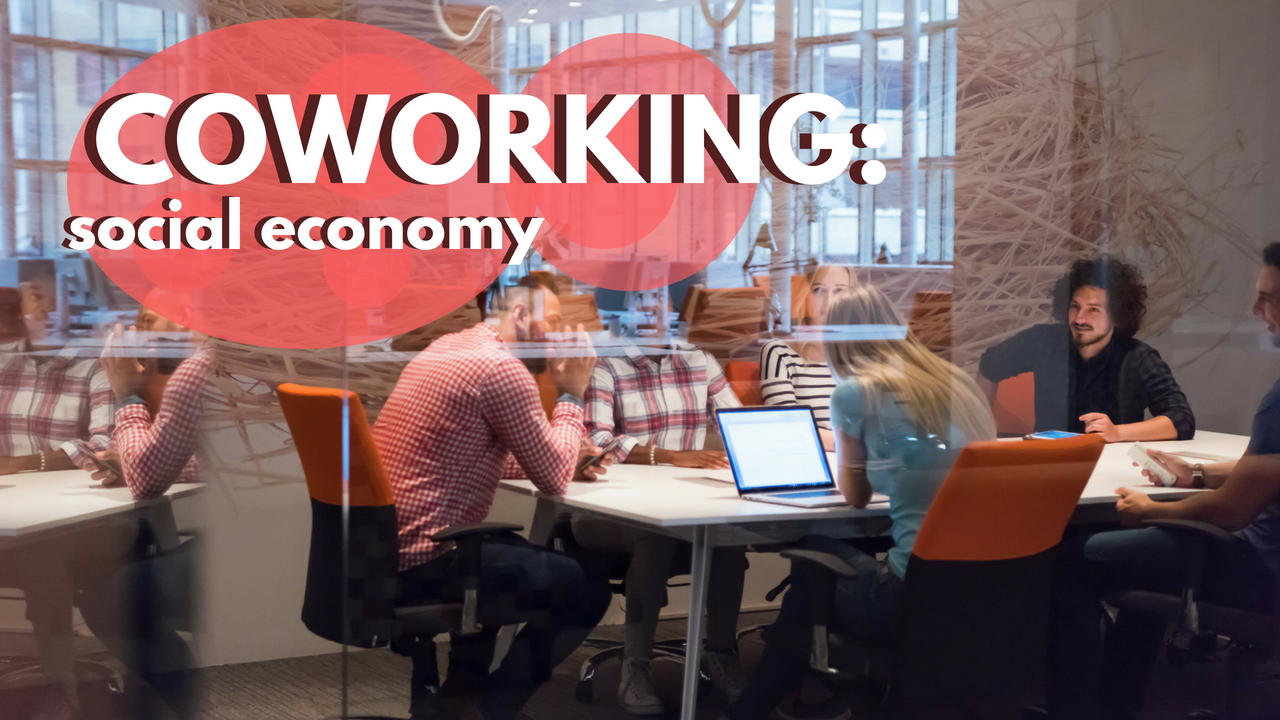- Two of coworking’s main value propositions are community and their ability to connect people
- In the academic paper “The Social Economy of Coworking Spaces: A Focal Point Model of Coordination” Jason Potts and Julian Waters-Lynch argue that coworking spaces function as micro social economies
- The above because they are a “social economy solution to an information coordination problem”
Since its founding back in 2005, modern-day coworking has centered its value proposition around the concept of community. Back in the day, coworking was mostly popular among homeworkers, freelancers, and entrepreneurs that were eager to find a solution to their social isolation. It was in coworking spaces that these professionals were able to access a community of like-minded individuals.
In the research paper “The Social Economy of Coworking Spaces: A Focal Point Model of Coordination”, Jason Potts and Julian Waters-Lynch argue that “a key part of the value of a coworking space accrues to its function as focal (Schelling) points for finding people, ideas and other resources when workers lack the information necessary for coordination.”
Potts and Waters-Lynch’s argument is that coworking spaces function as a micro social economy.
First, let’s take a look at what focal points are.
“Focal points are discrete salient points in an otherwise continuous space of possibilities that enable two or perhaps many people, who for whatever reason cannot communicate—perhaps they don’t know each other, or time or cost prohibits effective communication—but nevertheless know that they would mutually benefit if they can coordinate their actions.”
How does this translate into coworking spaces?
Coworking spaces have been known for encouraging serendipitous encounters among members. They’re known for fostering collaboration and for helping independent workers find potential business partners or team members. Many argue that coworking spaces are networking hot spots.
With this in mind, here’s how the focal points theory works.
Independent workers, freelancers, and entrepreneurs all face similar challenges. Potts and Waters-Lynch base their argument from this aspect of uncertainty common among these types of professionals; the uncertainty of not knowing “where to go to meet actors that have complementary knowledge or resources to help solve a particular problem, when you don’t know precisely whom you need to meet.”
These challenges range between getting input necessary for product development, creating a marketing strategy, building a new business, finding new sales channels, and the like.
Potts and Waters-Lynch assert that these types of situation often rely on tacit coordination given that actors don’t yet know each other.
“Tacit coordination is the phenomenon that people can successfully coordinate their decisions without communication, by basing their decisions on unspoken assumptions about what others are likely to do.” Tacit coordination, for its part, “is enabled through the mutual use of signals in the environment, especially the role of focal (Schelling) points of mutual expectation.”
Coworking spaces function as micro social economies because they connect people and they increase the probability of unforeseeable encounters. What coworking members refer to as serendipitous meetings can be equated to focal points. And this is possible due to coworking’s nature of fostering community and a sense of trust.
“Coworking spaces become entrepreneurially constructed focal points of tacit coordination between niche actors who anticipate finding each other at these locations in order to cooperate on joint projects. But the critical factor is that this emergent cooperation happens under high uncertainty and without communication, such that none of the actors know beforehand exactly who or what others they need to meet and what resources they will require, other than they know that others know that if they meet at this location—the coworking space—they have a good chance of finding what they’re looking for.”
The above is one of coworking’s main value propositions: connecting you with like minded individuals that can lead to new business ventures and opportunities. And operators are doing this both physically and digitally.
Take for example WeWork, which offers its members the WeWork Member Network, “a private, professional, social network for our members to access the global community as well as the perks and features of their membership. It’s the best place to solve business problems, find clients, and connect with other members.”
Looking at it this way, “a coworking space is a social economy solution to an information coordination problem in an entrepreneurial knowledge economy.”



 Dr. Gleb Tsipursky – The Office Whisperer
Dr. Gleb Tsipursky – The Office Whisperer Nirit Cohen – WorkFutures
Nirit Cohen – WorkFutures Angela Howard – Culture Expert
Angela Howard – Culture Expert Drew Jones – Design & Innovation
Drew Jones – Design & Innovation Jonathan Price – CRE & Flex Expert
Jonathan Price – CRE & Flex Expert













